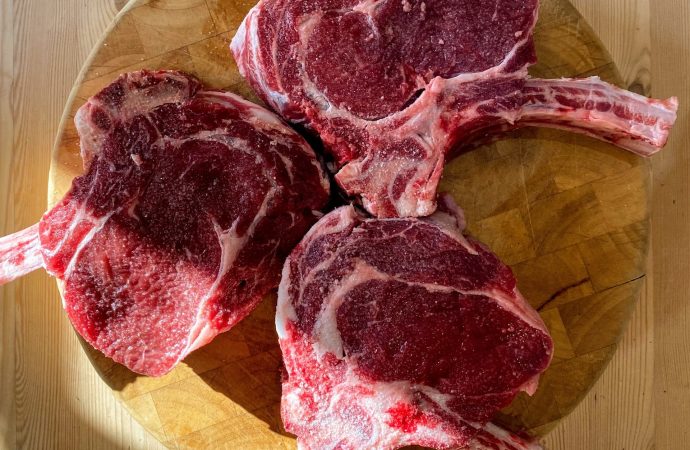Examining the Evidence: Study Reveals Red Meat’s Association with Higher Cancer Risk! A comprehensive study has recently brought to light compelling evidence linking red meat consumption to an increased risk of cancer. The findings of this study have prompted a closer examination of dietary habits and their potential implications for long-term health. The Study and
Examining the Evidence: Study Reveals Red Meat’s Association with Higher Cancer Risk!
A comprehensive study has recently brought to light compelling evidence linking red meat consumption to an increased risk of cancer. The findings of this study have prompted a closer examination of dietary habits and their potential implications for long-term health.
The Study and its Revelations
A team of researchers conducted an extensive study to investigate the relationship between red meat consumption and the risk of developing cancer. Through a meticulous analysis of data collected over a significant period, the study revealed a notable correlation between regular red meat intake and a heightened likelihood of developing various types of cancer.
Red Meat’s Role in Cancer Development
The study’s findings underscore the role of red meat consumption in increasing the risk of cancer. Notably, a higher incidence of colorectal cancer, as well as other types such as pancreatic and prostate cancer, was observed among individuals who consumed larger amounts of red meat on a regular basis.
Potential Mechanisms at Play
While the precise mechanisms behind the association between red meat and cancer risk continue to be studied, researchers propose several potential factors that may contribute to this relationship. Among them are the formation of carcinogens, including heterocyclic amines (HCAs) and polycyclic aromatic hydrocarbons (PAHs), during the cooking process of red meat. Additionally, the high iron content and saturated fat present in red meat could also play a role in promoting the development of cancer.
Emphasizing Moderation and Balanced Diets
The study’s findings underscore the importance of moderation and a well-balanced diet for maintaining optimal health. While red meat can still be enjoyed in moderation as part of a diverse diet, it is crucial to limit its consumption and choose leaner cuts. Prioritizing a variety of fruits, vegetables, whole grains, and lean sources of protein can help mitigate the potential risks associated with excessive red meat consumption.
Personalized Approaches to Nutrition
The link between red meat consumption and an increased cancer risk highlights the significance of personalized approaches to nutrition. Individuals should consider factors such as their health status, family history, and dietary preferences when making informed choices about their diet. Seeking guidance from healthcare professionals and registered dietitians can provide valuable insights in developing personalized dietary plans that promote overall well-being.
Public Health Implications and Recommendations
The study’s findings have significant implications for public health, necessitating awareness and education about the potential risks associated with red meat consumption. Health organizations and policymakers play a crucial role in disseminating evidence-based information and developing guidelines that encourage a balanced diet while reducing the risk of cancer and other chronic diseases.
Ongoing Research and Scientific Inquiry
While this study establishes a compelling association between red meat consumption and cancer risk, further research is essential to gain a deeper understanding of the underlying mechanisms and explore potential mitigating factors. Continued scientific inquiry will contribute to refining dietary recommendations and developing comprehensive strategies for cancer prevention and overall health promotion.
Empowering Informed Decision-Making
With this new evidence, individuals are empowered to make informed choices regarding their dietary habits. Reducing red meat consumption, opting for healthier alternatives, and incorporating a wide range of plant-based proteins can be proactive steps in minimizing the risk of cancer and supporting long-term health goals.
Collaboration for Public Health
Addressing the potential risks associated with red meat consumption requires collaboration among researchers, healthcare professionals, policymakers, and the public. By working together, we can foster collective efforts to promote healthy eating habits, raise awareness about cancer prevention, and improve public health outcomes.
Reevaluating Dietary Patterns
The study’s revelations regarding the association between red meat consumption and an increased cancer risk call for a reevaluation of dietary patterns. Embracing a balanced and diverse diet, where red meat is consumed in moderation and accompanied by a variety.

















Leave a Comment
Your email address will not be published. Required fields are marked with *